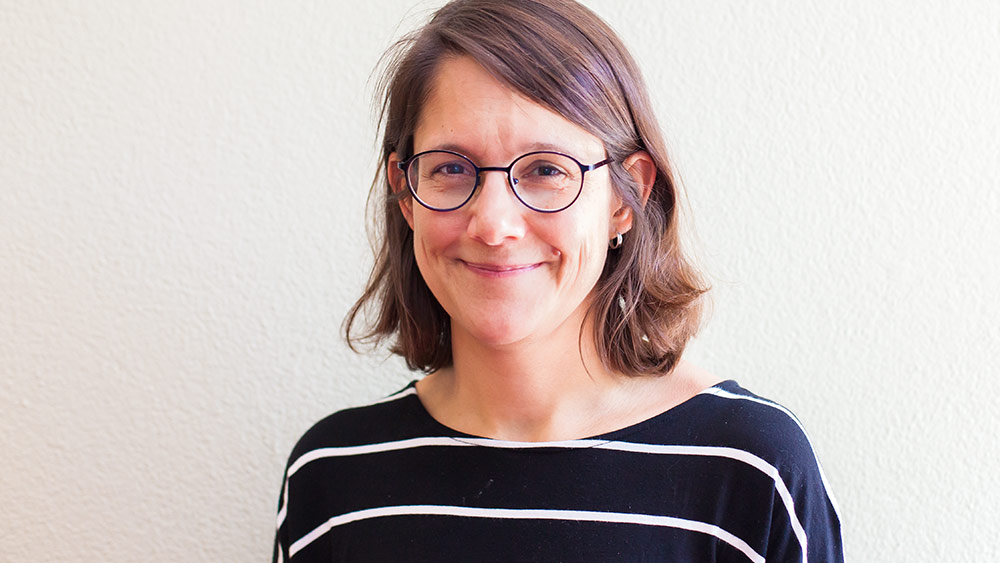Navigation auf uzh.ch
Navigation auf uzh.ch
Anna Deplazes Zemp’s research field is biological and environmental ethics. As a research associate at the Ethics Research Institute of UZH she has spent the past four years researching this area. The philosopher’s new research project, People’s Place in Nature, is focused on the question of why we should protect the environment. In it she plans to analyze the most common positions in the conservation debate from an environmental ethics perspective. Coupled with a sociological study, she wants to explore people’s actual attitudes towards nature with the aim of developing her own environmental ethics argumentation that will include and scrutinize everyday reasoning.
Why should we protect the environment? It’s a question that polarizes opinions. In politics and society, there are two approaches for making the case for a sustainable handling of nature. The reasoning that nature is important and beneficial for humankind is very widespread. We depend on an intact climate and functioning ecosystems that protect us from things such as avalanches and provide us with drinking water and fertile land. Ecosystems also give us space for relaxation and inspire us.
“These benefits-oriented arguments are probably the most convincing in our society,” says Deplazes Zemp. However, reducing the value and significance of nature to the services the environment provides us with doesn’t satisfy the environmental ethicist. According to this line of reasoning, destroying ecosystems that have no apparent benefit to humans wouldn’t be a problem.
The second traditional approach in the conservation debate is focused on inherent values. The reasoning is that animals, creatures, ecosystems or nature as a whole have intrinsic value and are thus worth protecting in and of themselves. The problem with this train of thought is that intrinsic values can be interpreted very differently. “Is every flower valuable or only nature as a whole, and where do these values come from? There’s no consensus on this in the environmental ethics discourse, as the construct is controversial and full of presuppositions,” explains Deplazes Zemp.
The ambitious environmental ethicist wants to resolve the dichotomy between benefit and intrinsic value, or humankind and nature. “My approach is based on an understanding of nature that views humankind as a part of nature rather than its polar opposite.” Anna Deplazes Zemp believes that humans shape their environment, which is why they have a direct relationship with nature. And once you become aware of this connection, you base your own actions on certain values.
For one thing, Anna Deplazes Zemp’s research involves investigating the significance of this relationship with nature by reviewing environmental ethics literature. For another – to better understand this relationship – the UZH researcher will include a sociological study alongside her ethical analysis. This study will be based on so-called relational values, which include various principles, virtues and preferences that arise from relationships.

And yet: “From an environmental ethics perspective the concept of relational value is still too fuzzy. For it to be used in an ethics argumentation, it must be clear what exactly is being assigned value and why a responsibility arises from it,” says Deplazes Zemp. This is why Mollie Chapman, a human geographer involved in the research project, will interview people who work in selected professions such as hunters or farmers. “We want to understand why they care about nature, what precisely they appreciate about it, and how they view their role and responsibility towards the environment,” summarizes Deplazes Zemp.
This research at the intersection of philosophy and social sciences will enhance ethical argumentation through practical examples and sharpen the sociological concept of relational values. Deplazes Zemp’s research project is part of the University Research Priority Program Global Change and Biodiversity – and she expects her research findings to stimulate interdisciplinary exchange. “Ecological and geographical insights are also an important part of understanding the relationship between humans and nature, and in turn, examining this relationship can be of interest for projects in the natural sciences,” says Deplazes Zemp.